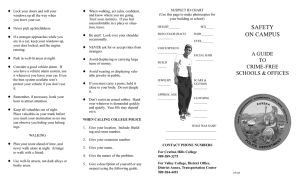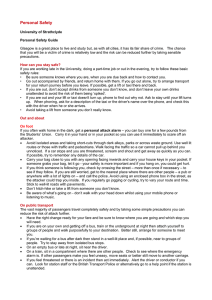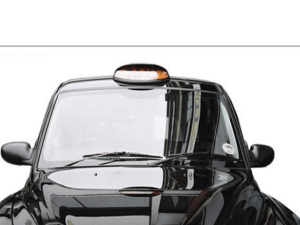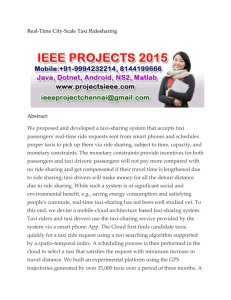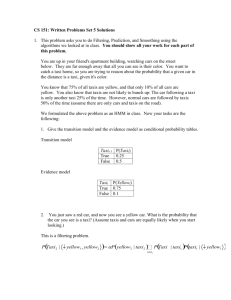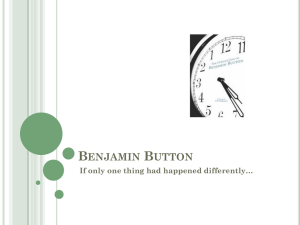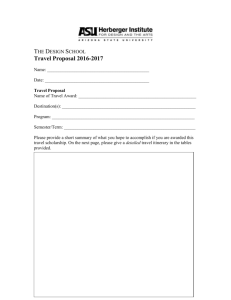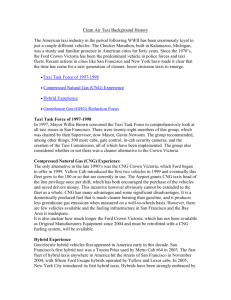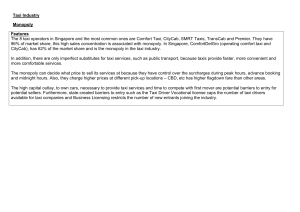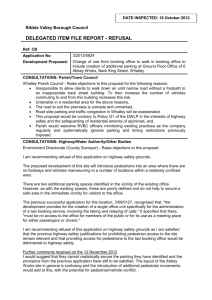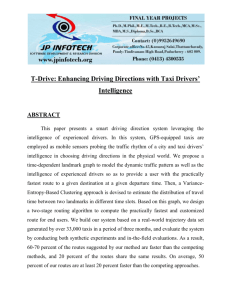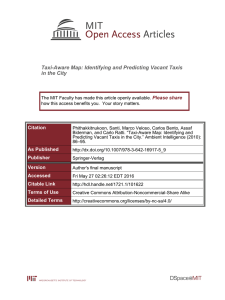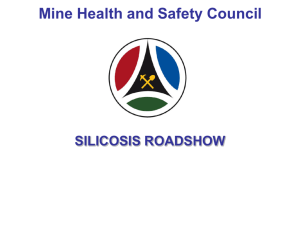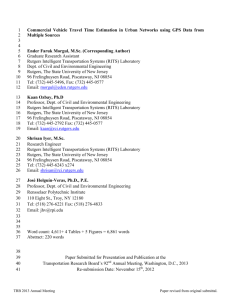Personal safety in countries with high crime rates
advertisement
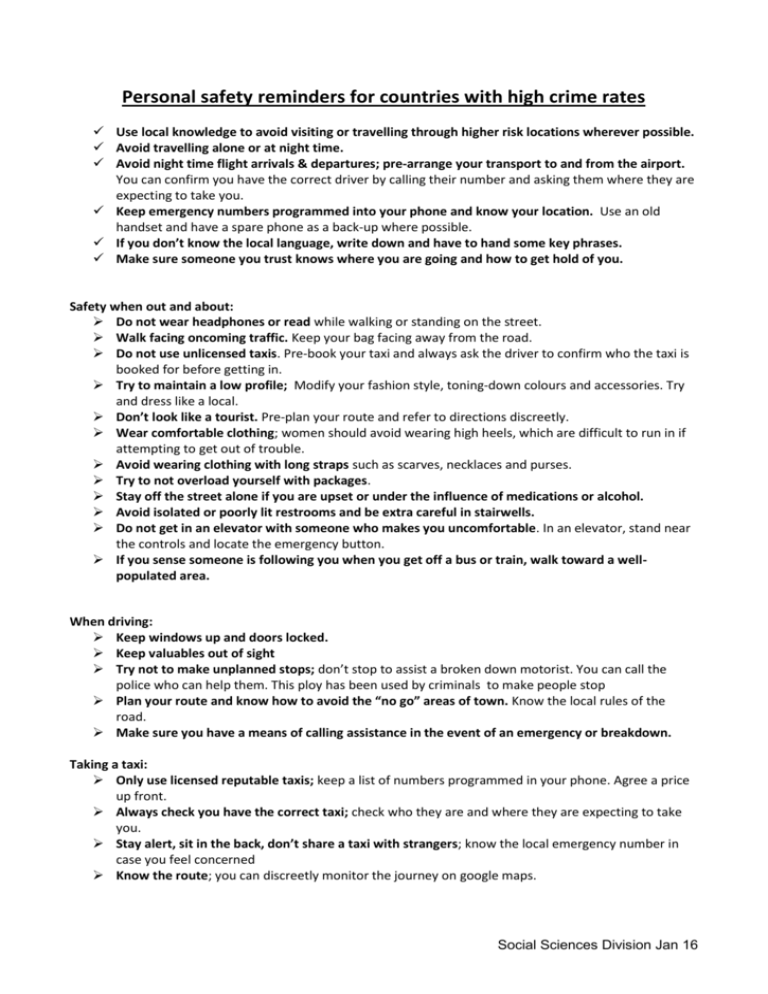
Personal safety reminders for countries with high crime rates Use local knowledge to avoid visiting or travelling through higher risk locations wherever possible. Avoid travelling alone or at night time. Avoid night time flight arrivals & departures; pre-arrange your transport to and from the airport. You can confirm you have the correct driver by calling their number and asking them where they are expecting to take you. Keep emergency numbers programmed into your phone and know your location. Use an old handset and have a spare phone as a back-up where possible. If you don’t know the local language, write down and have to hand some key phrases. Make sure someone you trust knows where you are going and how to get hold of you. Safety when out and about: Do not wear headphones or read while walking or standing on the street. Walk facing oncoming traffic. Keep your bag facing away from the road. Do not use unlicensed taxis. Pre-book your taxi and always ask the driver to confirm who the taxi is booked for before getting in. Try to maintain a low profile; Modify your fashion style, toning-down colours and accessories. Try and dress like a local. Don’t look like a tourist. Pre-plan your route and refer to directions discreetly. Wear comfortable clothing; women should avoid wearing high heels, which are difficult to run in if attempting to get out of trouble. Avoid wearing clothing with long straps such as scarves, necklaces and purses. Try to not overload yourself with packages. Stay off the street alone if you are upset or under the influence of medications or alcohol. Avoid isolated or poorly lit restrooms and be extra careful in stairwells. Do not get in an elevator with someone who makes you uncomfortable. In an elevator, stand near the controls and locate the emergency button. If you sense someone is following you when you get off a bus or train, walk toward a wellpopulated area. When driving: Keep windows up and doors locked. Keep valuables out of sight Try not to make unplanned stops; don’t stop to assist a broken down motorist. You can call the police who can help them. This ploy has been used by criminals to make people stop Plan your route and know how to avoid the “no go” areas of town. Know the local rules of the road. Make sure you have a means of calling assistance in the event of an emergency or breakdown. Taking a taxi: Only use licensed reputable taxis; keep a list of numbers programmed in your phone. Agree a price up front. Always check you have the correct taxi; check who they are and where they are expecting to take you. Stay alert, sit in the back, don’t share a taxi with strangers; know the local emergency number in case you feel concerned Know the route; you can discreetly monitor the journey on google maps. Social Sciences Division Jan 16 Petty Theft: Avoid carrying large amounts of cash, wearing expensive clothes or jewellery. When out, spread cash and any valuables about your person; have some “sacrificial cash” to surrender if threatened Also spread cash about generally, in a variety of places in your luggage, toiletries bag, handbag, hotel room, on your person. If you must carry a wallet or purse, wrap it in a rubber band - this creates friction, making it harder to pickpocket - or use a chain to attach your wallet to a belt loop. If you must carry a handbag, keep it closed, place the strap over one shoulder (not around your neck), keep it to your front and keep your hand on it. Do not use visible tummy bags - these advertise where your valuables are. Do not flash large amounts of money when paying a bill. If paying in cash, give the vendor an amount close to the purchase price. Have a separate purse of small coins and notes for incidental expenses. Avoid using outside ATMs at night or in unfamiliar surroundings. Avoid taking out large sums of money at any one time. Quickly and discreetly put your money away and be aware of anyone looking over your shoulder, or anything unusual at an ATM. Have someone at home set up to send you MoneyGrams or Weston Union Transfers; Banks may not send replacement cards to international destinations Deal only with authorised agents when you exchange money, buy airline tickets, or purchase souvenirs. Keep copies of all exchange transactions and receipts. Try to keep credit cards in sight during entire transactions and if a signature is required ensure slips are returned to you before you sign; Write the amount of the transaction, in your own handwriting, in the signature block; this helps protect you against merchants who might alter the amount on your credit slip after you leave. Insist on a copy of the voucher and all carbons If threatened: Surrender your valuables incrementally and without hesitation; give the attacker only what they ask for. In many countries, the criminal may be satisfied with very little. Do not lie though and comply without hesitation. Do not use offensive weapons such as mace or pepper spray. If you miss or the agent is ineffective, you have only antagonized the criminal. Without appearing to do so (avoid eye contact), note the criminal’s appearance, so that you can aid in identifying them to the police. If you have satisfied the criminal's demand, back away slowly and leave the area as soon as possible. Report the incident to your country's embassy and to the local police. Request a copy of the police report for insurance purposes. Social Sciences Division Jan 16
